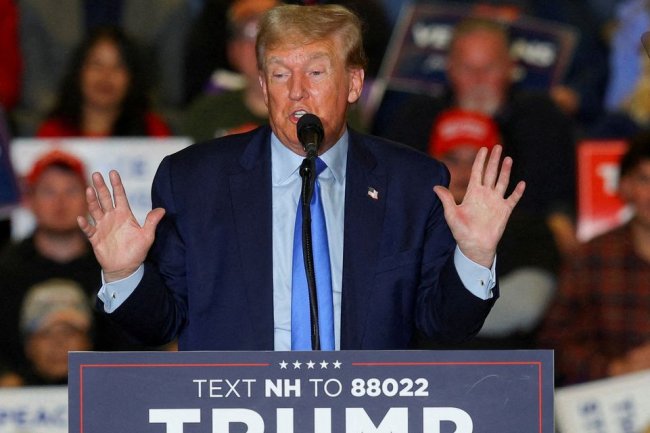Icahn’s Firm Cuts Dividend in Half After Activist Pressure
Billionaire investor revamps strategy after Hindenburg attack Billionaire activist investor Carl Icahn in a letter Friday said the company would focus on its activist strategy. Photo: Brendan McDermid/REUTERS By Ben Foldy Updated Aug. 4, 2023 4:54 pm ET Carl Icahn made a multibillion-dollar fortune as an activist investor, bullying companies into changing their businesses. Another activist has now forced him to do the same. Icahn Enterprises, which says it offers small investors a chance to “invest alongside the iconic Icahn,” said Friday it was cutting its dividend in half to $1 a share, the first reduction since 2011. Icahn also published a letter saying that his company would focus again on corporate activism, where it made big profits. He said i


Billionaire activist investor Carl Icahn in a letter Friday said the company would focus on its activist strategy.
Photo: Brendan McDermid/REUTERS
Carl Icahn made a multibillion-dollar fortune as an activist investor, bullying companies into changing their businesses. Another activist has now forced him to do the same.
Icahn Enterprises, which says it offers small investors a chance to “invest alongside the iconic Icahn,” said Friday it was cutting its dividend in half to $1 a share, the first reduction since 2011. Icahn also published a letter saying that his company would focus again on corporate activism, where it made big profits. He said it would wind down bets that the stock market would collapse, which have inflicted heavy losses.
“Our returns have been overwhelmed by our overly bearish view of the market,” Icahn said. “Going forward, we intend to stick to our knitting and focus on our activist strategy.”
Shares in Icahn lost 23% by Friday’s close, their worst day on record.
The changes come in the aftermath of a campaign launched against the company by activist short seller Hindenburg Research. In May, Hindenburg alleged Icahn Enterprises was overvalued, that its dividend was unsustainable and that Icahn himself had borrowed heavily against his shares in the company, leaving it vulnerable to a selloff.
In a tweet Friday morning, Hindenburg said that it was still shorting Icahn.
Icahn said Hindenburg’s report was self-serving and misleading. But he stayed unusually quiet as his company’s shares tumbled. Icahn owns most of the company’s shares, while small investors make up the remainder. The selloff raised the risk that Icahn would suffer a margin call, forcing more selling. There were no obvious buyers to snap up the shares.
The Justice Department opened an inquiry into Icahn Enterprises after Hindenburg’s allegations, the company disclosed.
Hindenburg’s bet against Icahn looks to have paid off while making life difficult for the octogenarian billionaire. Shares in Icahn Enterprises have lost roughly half their value since Hindenburg’s report, wiping roughly $9 billion from the company’s valuation.
Icahn worked to wriggle out of his financial straitjacket. Last month he pledged nearly all of his stake in the company and $2 billion in other assets as collateral for his loans.
Icahn’s renegotiated loans relieved some pressure on the company’s shares, as there had been a possibility that the steep declines in share price could lead to lenders forcing Icahn to sell down his stake in his company, further driving down their value.
In his Friday letter, Icahn said he believed the restructured loans “significantly diffused the effects of the misleading Hindenburg report.”
Nonetheless, Icahn Enterprises reported losing $269 million between April and June, compared with a profit of $128 million in the same period last year. Icahn blamed the performance in part on Hindenburg, saying that Icahn Enterprises’ investments in other public companies declined in value as a result of short-selling activity after the report. Investors were worried Icahn would be forced to sell shares of companies owned by his company. He also said the company reduced its short bets and “turned a corner in July.”
With the share-price decline, the $2 quarterly dividend Icahn has been paying since 2019 gave it an annualized yield of 24%, by far the highest in the market. Based on Thursday’s closing price, the cut to $1 quarterly restored the shares’ yield to the roughly 12% the company’s shares offered when they traded around $50 this spring. Friday’s swoon, however, increased that yield again.
Hindenburg also pointed out that the company has been paying dividends of late through cash on hand rather than investment profits, largely through returning capital to shareholders. Tax documents for Icahn investors after the most recent dividend payment showed that of the $2 payment investors were receiving, $1.80 was a “return of capital.” That bolstered Hindenburg’s argument that the dividend was unsustainable.
The spat has been a clash of two vastly different investors.
Short sellers make bets that stand to profit when a stock’s price declines. Activist short sellers like Hindenburg carry out detailed research and go public with the results, in hopes of sparking a selloff that drives down a company’s share price. Run by Nate Anderson, who is 39 years old, Hindenburg has had successes with electric-truck maker Nikola and other highfliers.
Icahn’s form of shareholder activism usually consists of buying shares in companies and making lots of noise in hopes of forcing the board to make changes that benefit his investment. He has said he invests following his gut, spending less time on a company’s financial details.
Icahn still has clout as an activist investor. While fending off Hindenburg, he waged a pitched proxy fight at gene-sequencing machine manufacturer Illumina. In May, Icahn scored a partial victory by having one of his slate of three nominees elected to the company’s board of directors. One of the targets of Icahn’s ire, Illumina’s then-chief executive Francis deSouza, stepped down soon after.
Write to Ben Foldy at [email protected]
What's Your Reaction?













